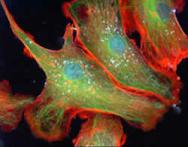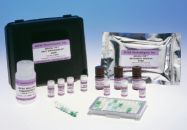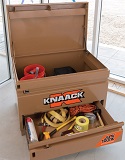Selected Auburn IAC Success Stories
 |
Bacterial strains as probiotic inoculants in agriculturePioneered by NAI Fellow Dr. Joseph Kloepper of the Department of Entomology and Plant Pathology, this technology focuses on the use of plant growth promoting rhizobacteria (PGPR) for plant health, nutrient uptake, and disease & pest control. Kloepper’s bacterial libraries have resulted in numerous license agreements with different companies and several products in field trials and on the market, driven by a call for greener, more organic crop treatments to replace harsh chemicals in agriculture. Kloepper's work has also resulted in numerous internal collaborations, including nematode control with Kathy Lawrence, insect control with Henry Fadamiro, turf grass studies with David Held, environmental applications with Allen Torbert, and non-plant applications with Mark Liles. The latter includes probiotics for aquaculture, and identifying strains to control infections in animal and human health. |
 |
CytoViva™ Ultra Resolution Imaging™A light microscope adapter using technology invented by Dr. Vitaly Vodyanoy of the College of Veterinary Medicine provides far higher resolution than current top-of-the-line research microscopes. The technology enables researchers to observe living cells in extremely fine detail without the time consuming or invasive sample processing steps which are typical of current high-technology microscopes. Additional benefits include enhanced fluorescence & hyperspectral imaging capabilities and utility in the nanotechnology and materials industries. Introduced to the market in late 2004, CytoViva continues to be actively sold into numerous markets. CytoViva was won several major national awards: R&D Magazine's top 100 most technologically significant products introduced in 2006 AND 2007 and the Nano 50 Award by NASA Tech Briefs, which recognizes the most exceptional new products in the nanotechnology field. |
 |
Animal Feed Test KitsMost countries have agreed that eliminating the previously common practice of adding ruminant (e.g., cattle, sheep) by-product meal to cattle feed is the most important firewall in preventing the spread of bovine spongiform encephalopathy (BSE or mad cow disease). The FDA banned this practice in 1997. Using antibodies invented by Dr. Peggy Hseih, formerly of the College of Human Sciences, kits are now commercially available that can detect the presence of ruminant tissues in rendered meat and bone meals and animal feeds. Two complimentary kit types are available from two different companies: Neogen Corporation's field-ready Reveal™ test strips and ELISA Technologies' 96-sample MELISA-TEK™ assays for more rigorous laboratory testing. |
 |
Junk TrunkTMThe McWhorter School of Building Science and the School of Industrial + Graphic Design participated in a multi-year collaborative effort dubbed Studio + Build. Students devised new product concepts to help solve problems in the construction industry. Some of those projects were done in collaboration with Knaack, and were focused on improving the designs of "gang boxes" -- large workboxes to be used by multiple people at a construction site. Nickolas Madsen and a team of students, along with professors Paul Holley, Mike Thompson and Tsailu Liu, developed designs that were incorporated into Knaack's 4830-D Jobsite Chest with Junk Trunk, introduced to the marketplace in 2013. |


